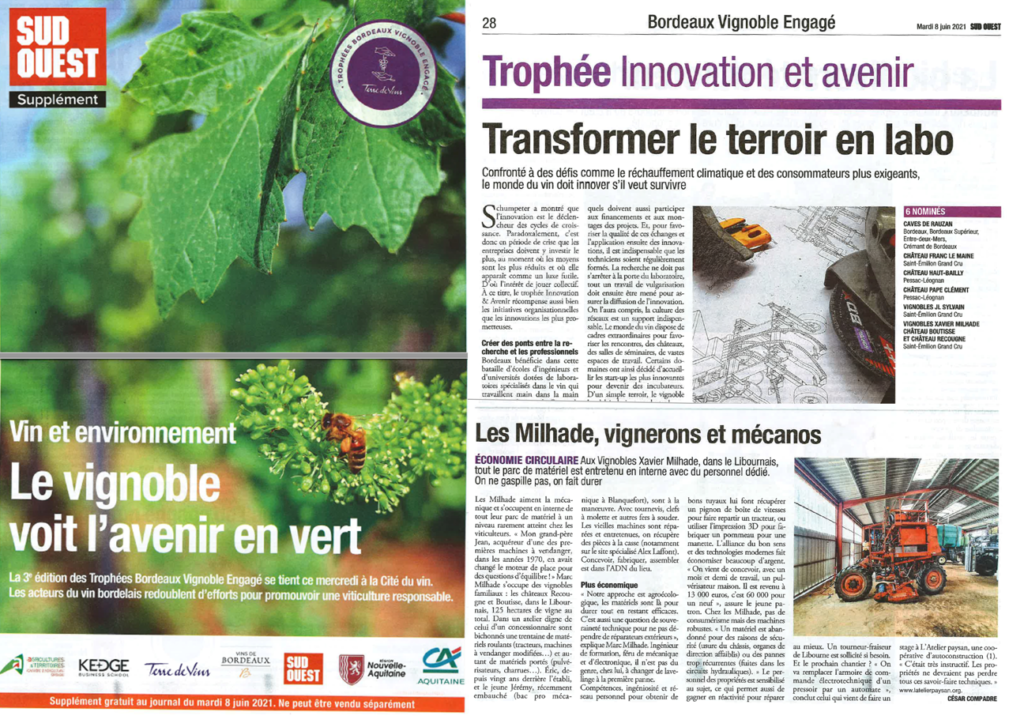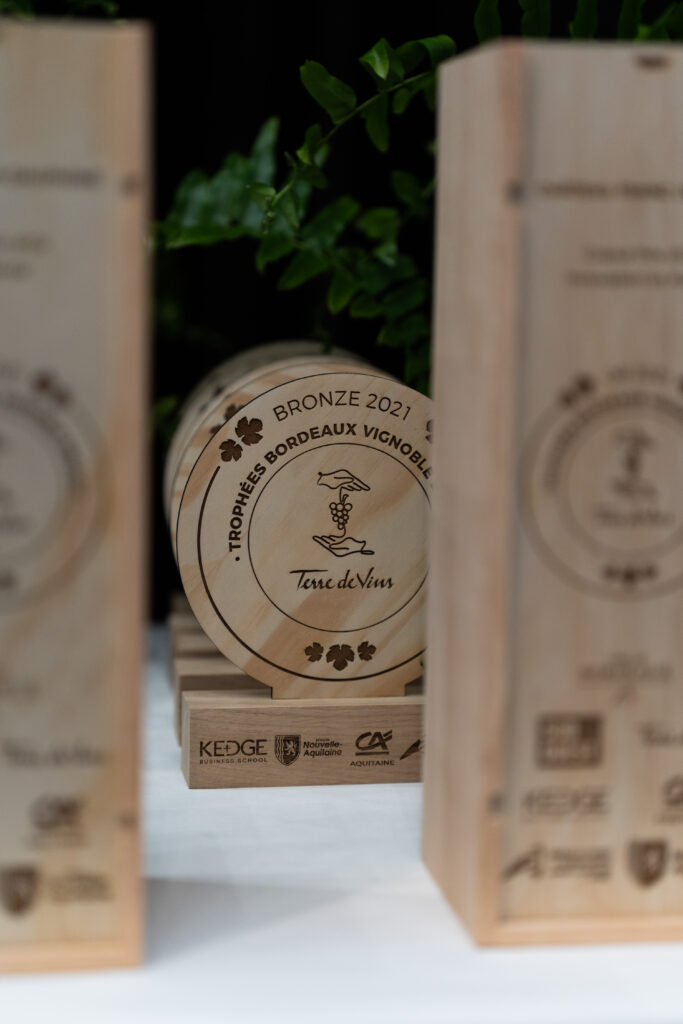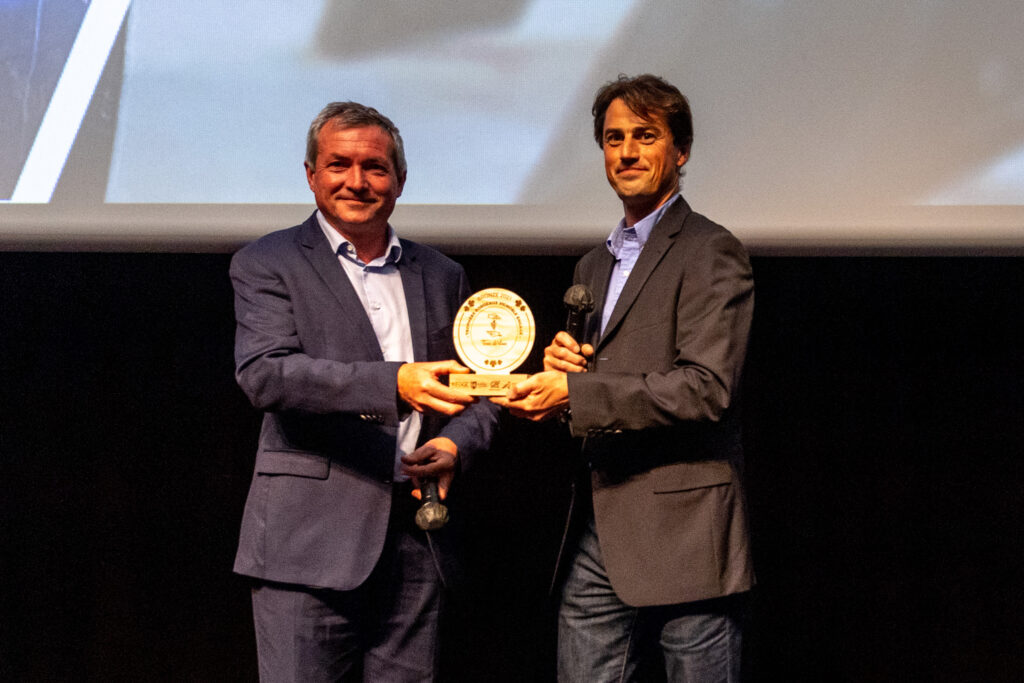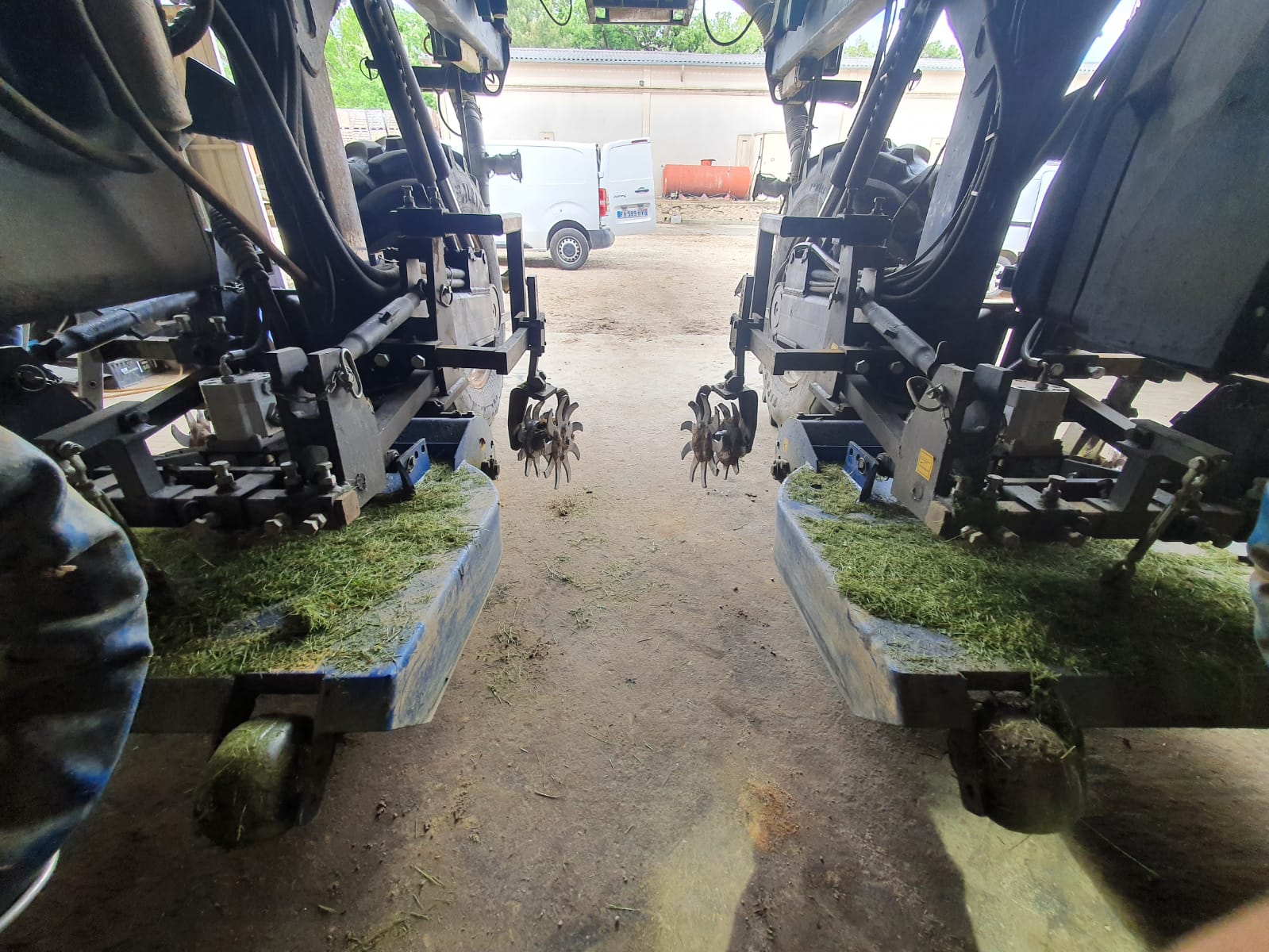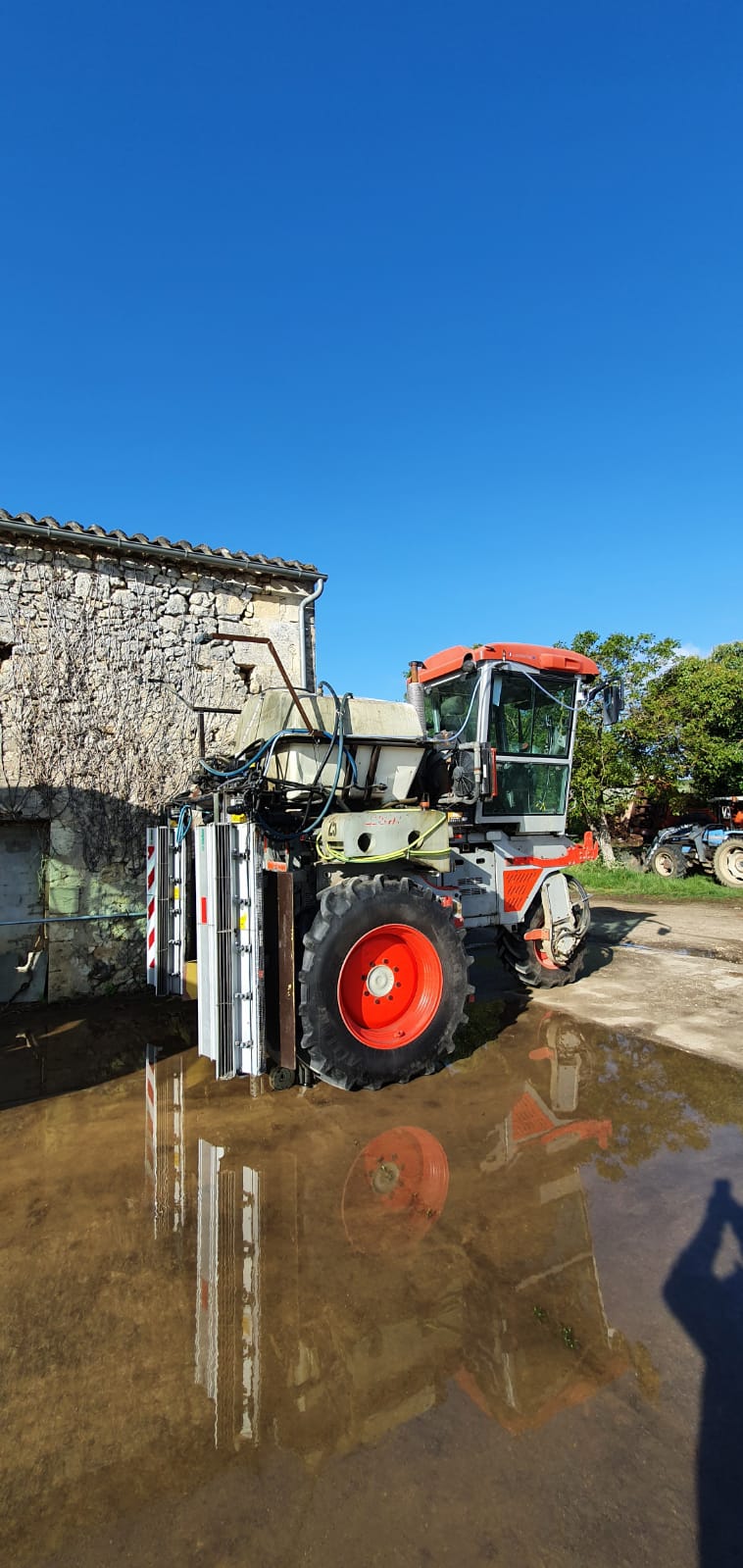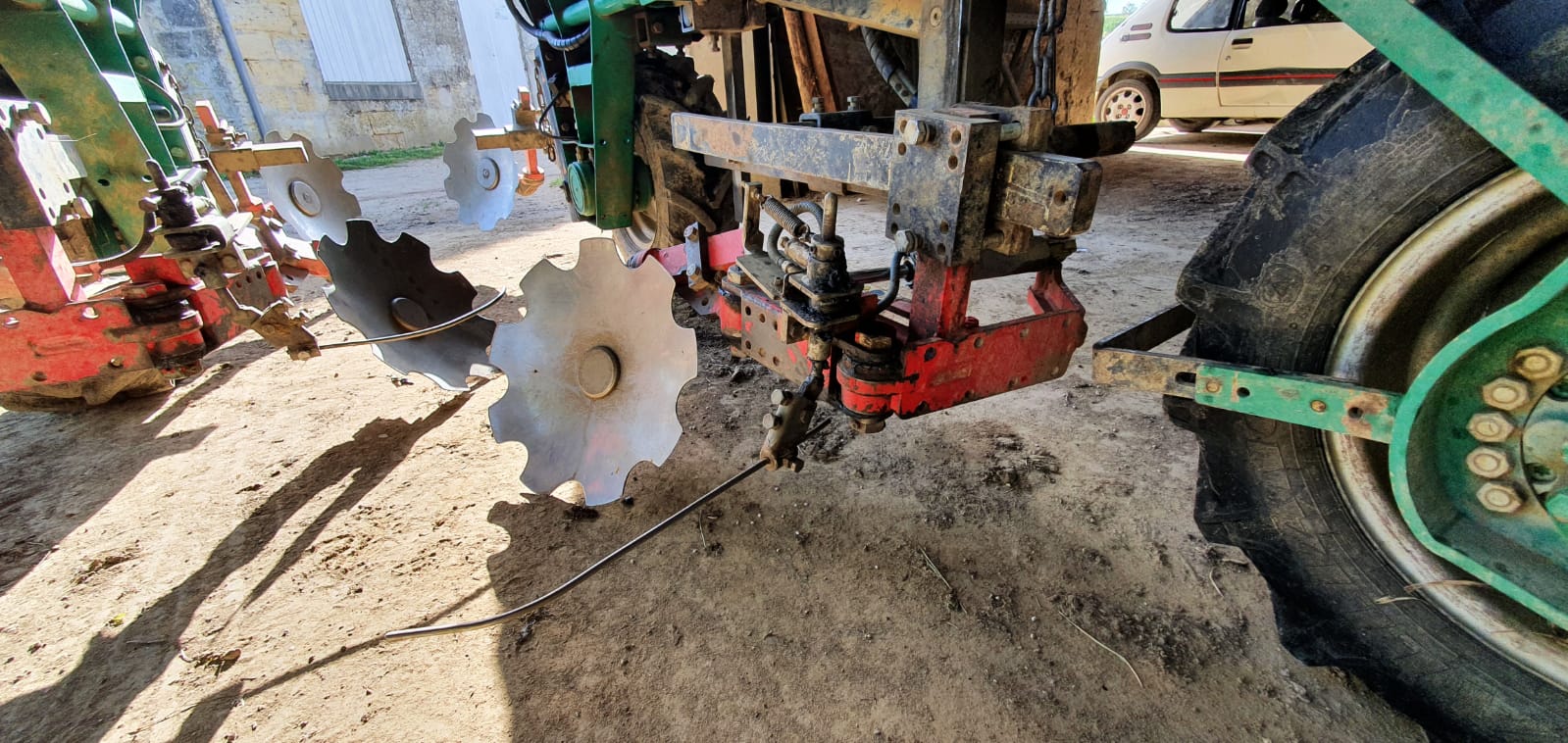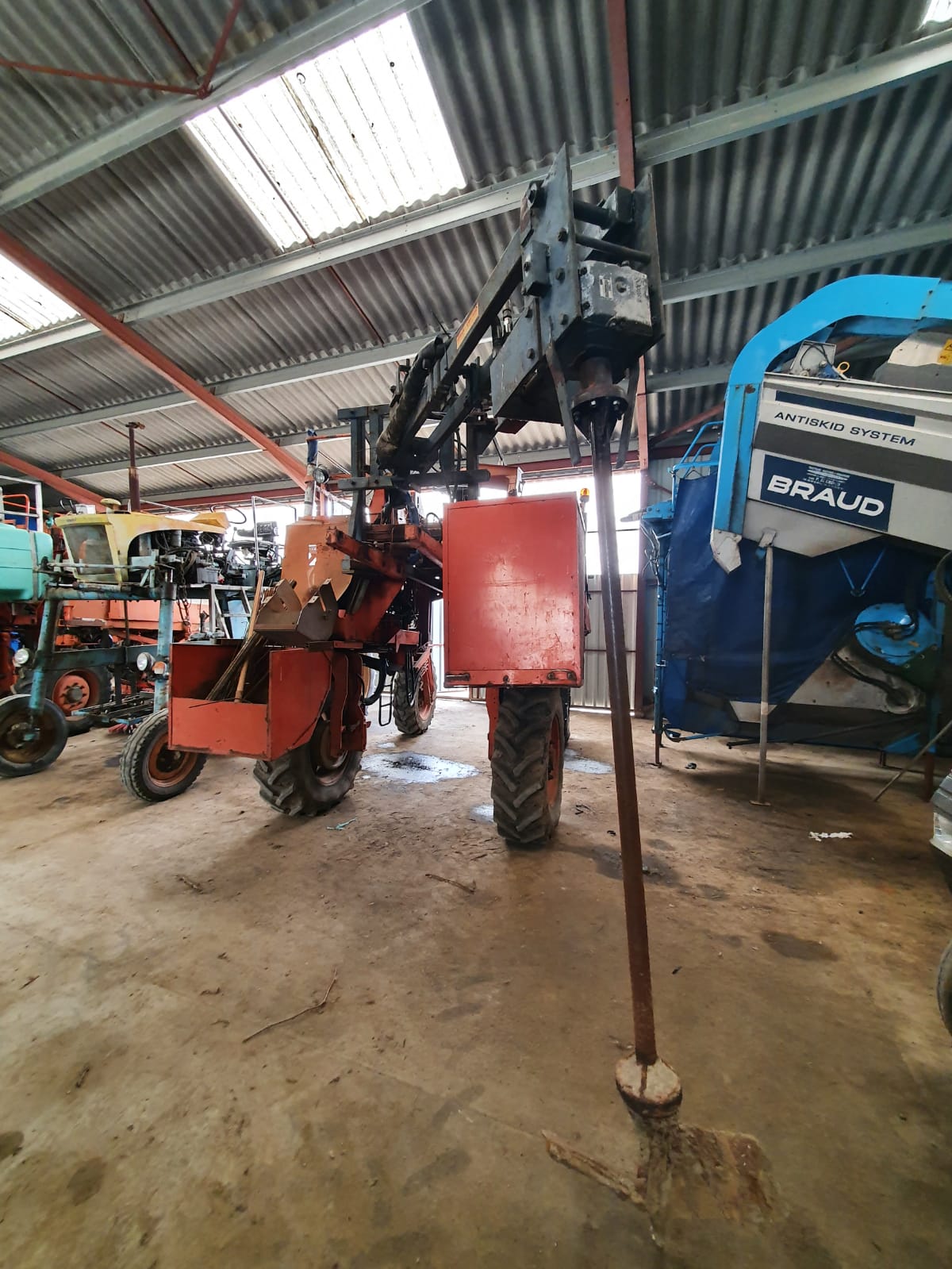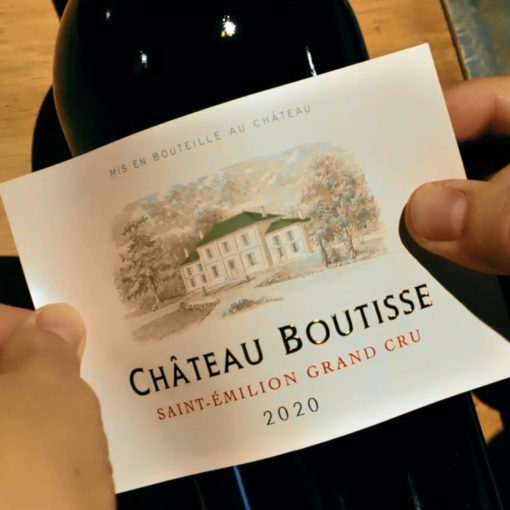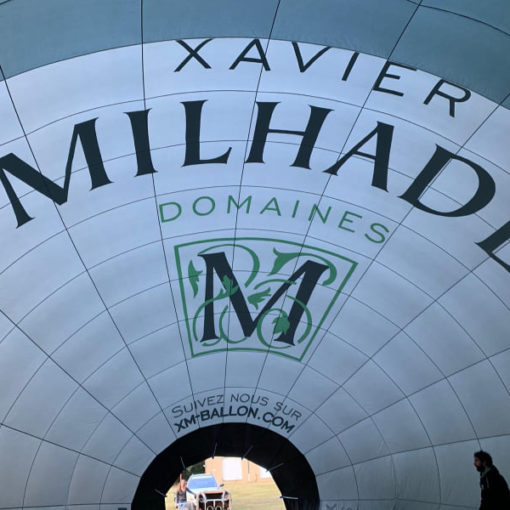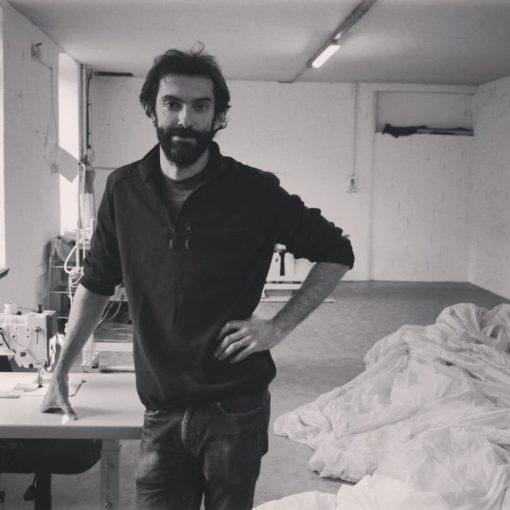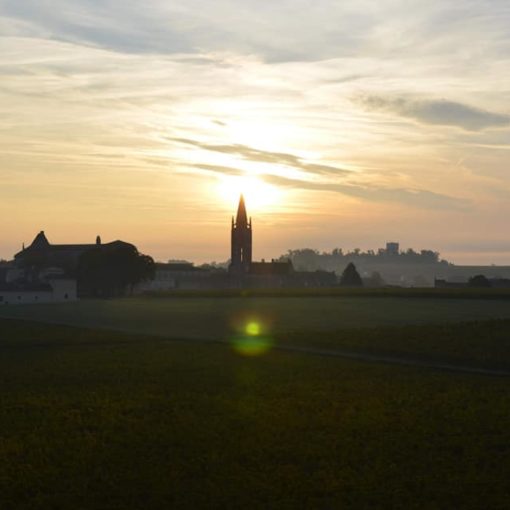Passionate from father to son about vineyards and wine, our family is also passionate about technique and viticultural equipment. We are committed to preserving our technical autonomy as well as our knowledge and know-how, in contrast to technologies that deprive us of them.
Marc Milhade
We have recently been rewarded for this practice at the Trophée Bordeaux Vignoble Engagé 2021, in the “Innovation and Future” category, by Terre de Vins.
A great recognition for the work accomplished and for our teams at Chateau Recougne and Chateau Boutisse!
Our agroecological approach starts with a reflection on the sustainability of the material and the reappropriation of the technique by the winegrower.
Our objectives are multiple :
- Reduce the obsolescence of equipment, which is very high in our consumerist society, through internal monitoring of maintenance and training in detecting breakdowns.
The obsolescence of equipment is now commonplace. Against this trend, we strive to choose robust equipment, and to make it last over time. This requires competent and trained personnel, and adapted infrastructures. Most of our machines have more than 10,000 working hours, and some of them date back to the 1960s. Safety remains the decisive criterion in the choice of abandoning a piece of equipment (pronounced wear of the chassis or the steering components).
- Design and adapt our equipment to our specific needs, manufacture of multi-row combination tools
The common sense of the farmer is the key word. We adapt the equipment to our way of producing and not the other way around, often in collaboration with the manufacturers. Our workplace is equipped with the necessary material to design, manufacture and assemble.
Ideas are born thanks to exchanges with our employees, and to new technological solutions. The idea is to always mix common sense and modern technology.
- To give autonomy to our employees thanks to internal technical trainings and to the provision of professional equipment. To improve the reactivity in the resolution of breakdowns
The know-how is maintained in the company by internal training in the use of tools and equipments with our tractor operators. We also hire young people from agricultural engineering high schools. The drivers, although they have the technical support of the maintenance manager, know how to repair daily breakdowns. This brings speed in the search for breakdowns, and a great reactivity in the resumption of work.
- Recycle all or part of any material to develop a new one
No material is thrown away, waiting to be totally or partially recycled. The joints can be used for other tools, as well as the electrical and hydraulic components. Recycling is part of a virtuous environmental approach.
- Reduction of maintenance budgets and mechanical investment
This approach also has an impact on the maintenance budget of our estates. We regularly buy from agricultural scrapyards or small craftsmen specialized in a specific field or equipment (turners, engine rewinders, hydraulic engineers, etc.).
Our farms are HVE3 certified and have been involved in the appellation’s collective environmental initiatives for several years. Even if we obviously take into account the reduction of phytosanitary products, the integration of technological tools, agroforestry, etc., in our approach, we consider that the conservation of our technical autonomy falls within the framework of agroecology and allows us to demonstrate that good farming sense still exists.
Thanks to Terre De Vins and Sud Ouest for this beautiful award and the article below:
Click to zoom
